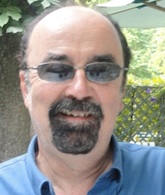James C. Coyne, Ph.D is Director of the Behavioral Oncology Program, Abramson Cancer Center and Professor of Psychology, Department of Psychiatry, University of Pennsylvania School of Medicine.
Here is a link to a CBS news television story in which he appears along with Barbara Erenreich and Lance Armstrong.
Dr. Coyne and his behavioral science research team work on understanding the coping process in cancer patients and testing the effectiveness of interventions in enhancing the patient’s well being. Major depression and anxiety disorders tend to be overlooked and inadequately treated in cancer patients, and their risk can extend into survivorship. The team has been documenting the extent of the problem of untreated and inadequately treated depression and anxiety and developing ways of ensuring better treatment and follow up. The team is working to redesign methods of psychosocial intervention in order to better accommodate the needs, abilities, and desires specific to cancer patients and survivors out in the community. more recently, the group has begun examining ways of addressing the disadvantage of men without partners in the adherence to and outcome of treatment of cancer, a disadvantage apparently not shared by women without partners.
In addition to his appointments at the University of Pennsylvania School of Medicine, Dr. Coyne is an adjunct professor of Health Psychology at the University of Groningen. He received his B.A. from Carnegie-Mellon University and his Ph.D. in clinical psychology from Indiana University. He served on the faculty of Miami University and, then, the University of California, Berkeley. after completing a fellowship in the social environment and health program of the Institute for Social Research (ISR), University of Michigan, he remained as a faculty associate of ISR and joined the faculty of the Department of Family Medicine and Department of Psychiatry at the University of Michigan. While at Michigan, he was also a senior investigator in behavioral sciences research at the University of Michigan Comprehensive Cancer Center. In citation analyses, Dr. Coyne consistently ranks in the top 200 of all North American psychologists for impact of his work. He has served on many editorial boards across disciplines and has been an ad hoc member of numerous NIH study sections and advisory boards. He is as been elected a fellow of the American Psychological Association, Society of Behavioral Medicine, and Academy of Behavioral Medicine Research.
Check out the following Psychology CE Courses based on listening to Shrink Rap Radio interviews:
Jungian Psychotherapy Part 1 (6 CEUs)
Jungian Psychotherapy Part 2 (7 CEUs)
Jungian Psychotherapy Part 3 (7 CEUs)
Jungian Psychotherapy discounted Package of the Three Above (20 CEUs)
Wisdom of The Dream (4 CEUs)
Positive Psychology (6 CEUs)
Get our iPhone/Android app!
A psychology podcast by David Van Nuys, Ph.D.
Podcast: Play in new window | Download
Subscribe: Apple Podcasts | RSS

This interview and your comments highlight the difference between research and clinical experience.
Research can only deal with generalities but the clinician is concerned with individuals. The research is concerned with the ‘objective’ (eg length of life) but the clinician with the ‘subjective’ (helping the client feel good).
The researcher’s perspective dealing with generalities ignores the outliers. Eg in fitness those who don’t recieve benefit from exercise get lost in the averages – but to these individuals (and to the clinicians that deal with them) the generalities are utterly irrelevant.
How I do agree with, “To the extent it is useful it is not new, and to the extent it is new it is not very helpful”. I don’t know of anything in positive psychology that wasn’t anticipated by the Third Force psychologies and therapies.
The placebo effect is the elephant in the room.
The kind of “positive psychology” I find suspect is stuff like “The Secret” and anything by Wayne Dyer. It all just seems like so much pop new age fluff.
Thought-provoking interview. It might be useful to consider the discourse of positive psychology (particularly its most extreme and questionable assertions, such as “you can heal your body through positive thoughts and feelings” in the context of American capitalist ideology.
One of the best known tenets of mainstream American culture is that every person’s progress and happiness (we could include “health” here) is almost entirely the product of that person’s choices and efforts. External factors are not seen as very influential in shaping a person’s living conditions. No wonder why the self-help industry has become such a profitable business catering for people wanting to become rich and healthy, ignoring contextual and hereditary limiting factors.
Great interview, as other comments also say, if you include the historical and cultural context of the “positive psychology” craze (and I do think it’s a craze), you see how superficial and misleading and even damaging it can be. And how much money is being made by those who promote it.
The only problem I had was that the podcast seemed to cut off before the end of the interview… did anyone else have that happen?